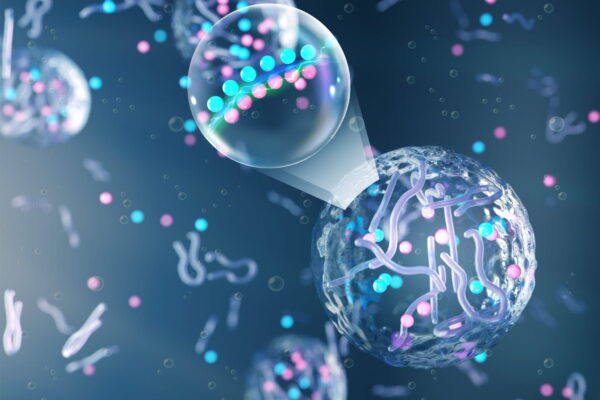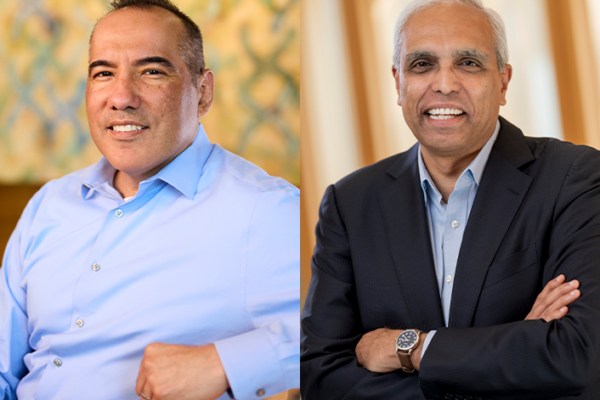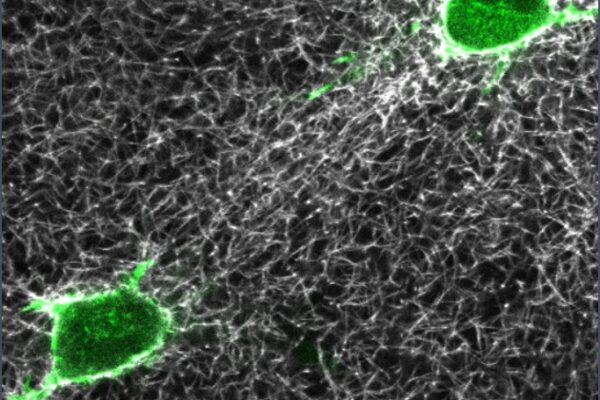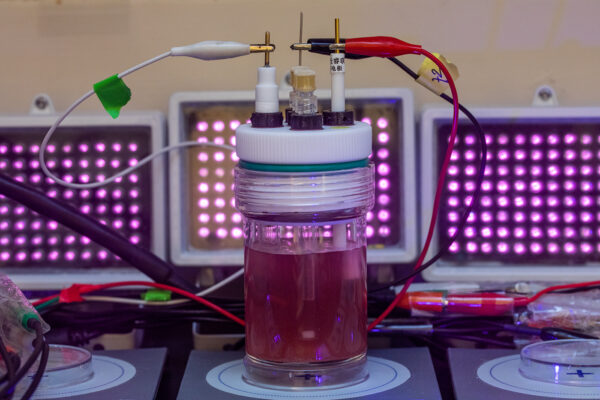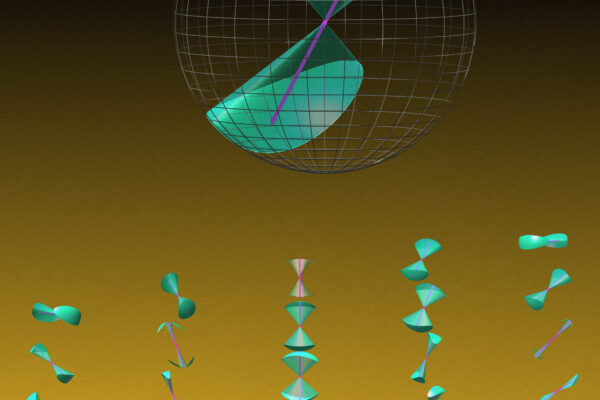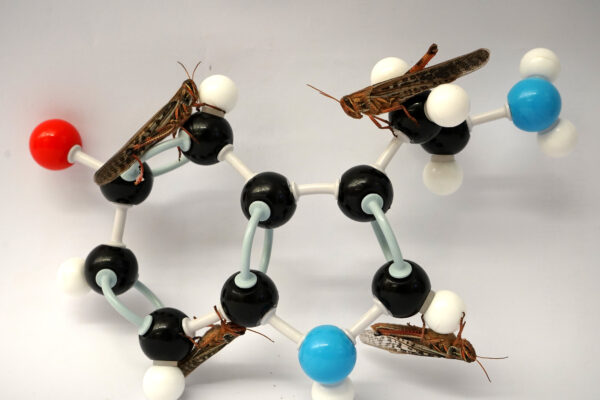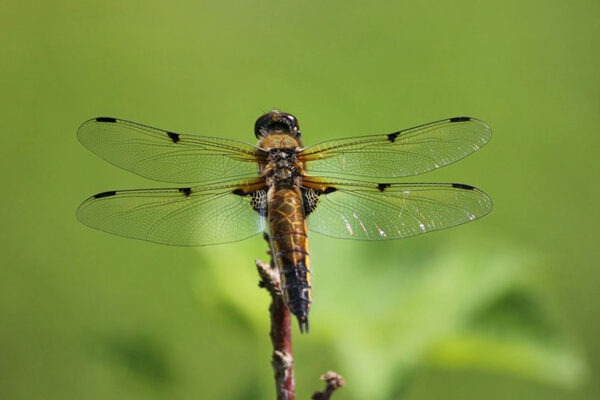Potential Type 1 diabetes treatment may stem from outsmarting immune cells
Cory Berkland, a researcher at Washington University, will lead preclinical diabetes research with a $2.6 million grant from The Leona M. and Harry B. Helmsley Charitable Trust.
Understudied protein blobs have big effect on cellular function
Researchers from WashU and Duke University have shown that the formation of biological condensates affects cellular activity far beyond their immediate vicinity.
Two WashU faculty honored by biochemistry group
Two WashU faculty members, Benjamin Garcia and Rohit Pappu, have received annual awards from the American Society for Biochemistry and Molecular Biology.
Researchers take cue from vibes of elephants, spiders
A team of researchers that includes scientists from Washington University have received $1.5 million grant from the Human Frontier Science Program to study a potentially transformative new mode of cell-to-cell communication.
Turning bacteria into bioplastic factories
Biologists in Arts & Sciences have found new ways to encourage the plastic-producing power of purple microbes.
WashU to lead $26 million decarbonization initiative
A collaboration of universities and industry, led by the McKelvey School of Engineering at Washington University, is embarking on a bold plan to transform manufacturing toward zero or negative emissions by converting carbon dioxide into environmentally friendly chemicals and products that create a circular economy.
Wobbly molecules get a closer look
Microscopy engineers at Washington University model how molecules move to enhance understanding of nanoscale biological systems.
Studying how serotonin alters locust’s sense of smell
Researchers at Washington University studied the role of serotonin in altering odor-driven behavioral and neural responses in locusts.
Ornamented dragonflies better equipped to survive human threats
A study by Kim Medley, director of Tyson Research Center, and others found that dragonflies with dark wing markings have a lower risk of extinction.
Daily rhythms depend on receptor density in biological clock
Tweaking the numbers of receptors in a key brain area changes the daily rhythms of rest and wake in mice, according to research led by Daniel Granados-Fuentes in Arts & Sciences, published in the Proceedings of the National Academy of Sciences.
Older Stories

